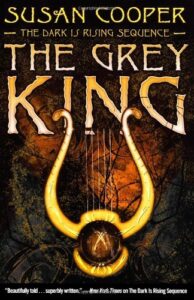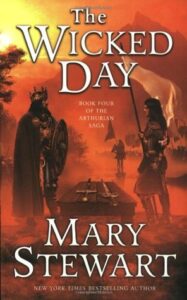 The Wicked Day, Mary Stewart
The Wicked Day, Mary Stewart
Arrrghhh, this book! Okay, on the good side: Stewart knew the Arthurian material well and handled it with confidence, often bringing in small details in ways which were a delight to spot (but which didn’t particularly harm the narrative if you didn’t spot them). And it’s an interesting take on Mordred: a loyal son to Arthur, once he knows about it, taking up much the same sort of relationship as between Merlin and Ambrosius, or Arthur and Merlin. His emotions are for the most part really well done: his ambition, his determination, how he fights against his fate and ultimately serves it.
But. Arthur. In the last quarter or so of The Wicked Day, Stewart breaks her entire previous characterisation for Arthur. He becomes irrational, forgets who he can trust, takes advice from the wrong people — ignores the advice of people like Nimue, whose power comes from Merlin. He forgets what’s important — forgets important plans that he made — and just gives way to suspicion and slander. He endangers everything, and for what? For suspicions that just chapters before he knew were unfounded.
The way I read it, Stewart broke her own story’s backbone by insisting that everyone (except the women) remain blameless. She didn’t want to blame Arthur or Mordred or Bedwyr, so she palmed some of it off on Gawain’s rash nature, some of it on Mordred’s latent ambition, and… some on Arthur being an idiot in ways he hasn’t been at any other point in the series. She couldn’t resist heaping calumny on the women: Morgause committed incest knowingly with her brother, and then wanted to commit incest again with the son born of that union. What the hell? The other books well-established Stewart’s near-inability to handle the women of the Arthurian mythos (more surprising given the relatively active and capable heroines of her mystery/romances), but this is just… desperate. It reeks of pushing everything off onto the female characters, but she had to do it because she decided that it “didn’t make sense” for Mordred and Arthur to do things they do in some branches of the mythos — in some kind of wrong-headed attempt to marry it all together, or to follow the example of others (cough, Malory) who didn’t manage to bring it all together. It just won’t go.
And I can kind of get it. I did enjoy the little references I noticed, for example to other sons of Arthur. We want to admire the Arthurian heroes, and we want the best of all of them: the just and strong king, the heroic seneschal, etc, etc. (And I was badly served in this, since Gawain is an impetuous idiot given to murder in this version, and also my favourite knight in the general mythology.) But Stewart tried to get everyone out ‘alive’, or at least their reputations (few of them actually survive, which is kind of a relief given the contortions she went through in The Last Enchantment to keep Merlin alive), and that… doesn’t work.
It’s so frustrating, partially because I get the impulse, and I liked the relationship between Arthur and Mordred here. The treatment of women aside, I quite enjoyed the first three quarters, or even four-fifths. But. But. Stewart broke her own story and characterisation because she couldn’t make a hard decision, as far as I can see, and the story is critically weakened by it.

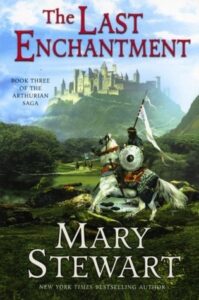
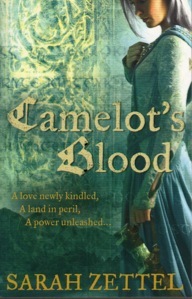 Camelot’s Blood, Sarah Zettel
Camelot’s Blood, Sarah Zettel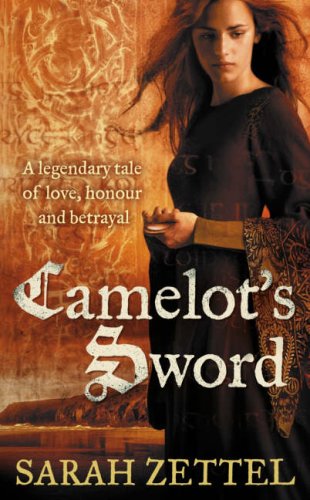 Camelot’s Sword, Sarah Zettel
Camelot’s Sword, Sarah Zettel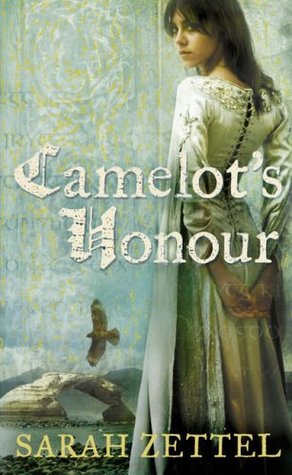 Camelot’s Honour, Sarah Zettel
Camelot’s Honour, Sarah Zettel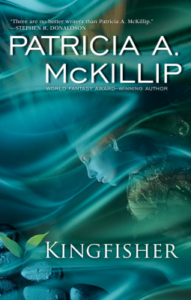
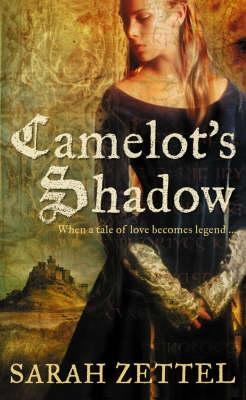 Camelot’s Shadow, Sarah Zettel
Camelot’s Shadow, Sarah Zettel